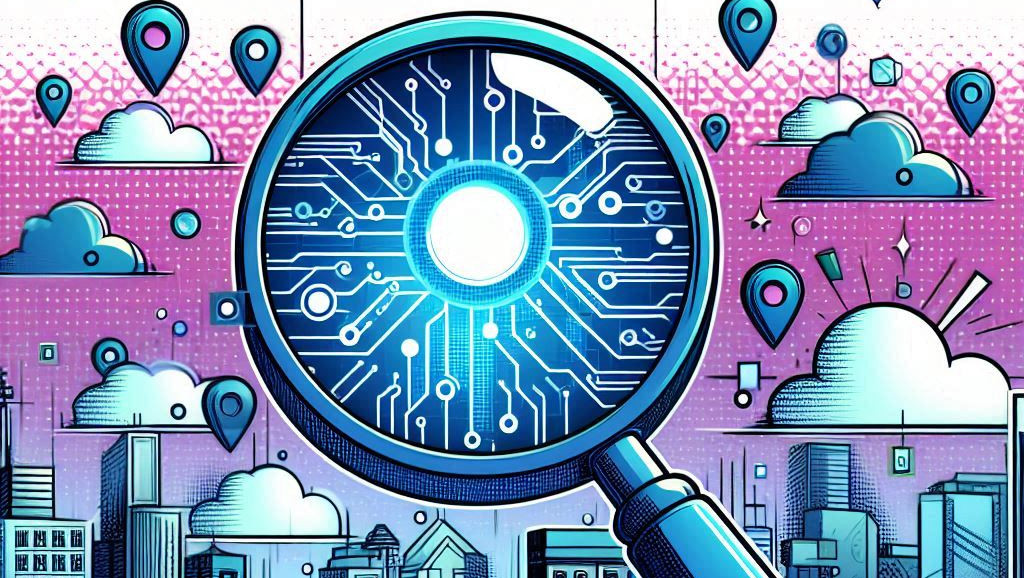The Browser Wars are Back, Baby!
by on 6th Nov 2025 in News

OpenAI have launched Atlas, Perplexity have launched Comet. The age of AI driven search is truly here and the fight is on for the future of the web. Harry Menear looks at the latest in the global browser wars.
There has been – to use the parlance of the kids – a vibe shift in the AI industry. All the way up from scrappy AI startups to the boy king, Sam Altman, there’s been a distinct change in the tone and content of conversations surrounding what generative AI will actually be used for.
In the early days, luminaries (Altman in particular) loved to speak in abstracts and far-reaching, fantastical terms. Gen AI was going to solve the climate crisis, optimise away scarcity, and radically reshape the creative process. In the last year (particularly in the rocky wake of ChatGPT 5.0’s underwhelming release) a lot of those talking points have quietly disappeared. Expectations have been adjusted. War is peace. Truth is lies. And so on. Altman even did a one-eighty on artificial general intelligence (AGI). In August when asked by CNBC if the new ChatGPT was a step closer to achieving AGI – the very goal he claimed repeatedly and recently it was OpenAI’s mission to achieve – he said “I think it’s not a super useful term.” This is the guy who last February put out an essay on his personal blog that kicked off with the line “Our mission is to ensure that AGI benefits all of humanity.” Like I said, the good vibes have shifted.
In their place: a more pragmatic attitude in which AI companies are focusing on (or at least talking about) society-reshaping challenges of the far future to monetisation strategies of the here and now. Burdened by skyrocketing capital and operational expenditure, not to mention rumblings about enterprise AI trials falling short of expectations, the AI industry is seeking viable monetisation streams with increasing urgency. OpenAI lost approximately USD$5bn (£3.84bn) last year. Clearly, someone has decided that needs to change.
Obviously, in the age of convenience e-commerce and the data-driven attention economy, that means AI companies are going after ad revenues.
Right now, the online advertising landscape is dominated by Google. Google's annual advertising revenue is expected to eclipse USD$280bn (£215bn) this year. The company is the comfortable market leader with a 24.8% share. Those days, however, could be numbered. OpenAI is leading an AI industry’s assault on the internet status quo. First, the launch of AI-content TikTok clone Sora at the start of this month puts the company directly in competition with social media giants like Meta. Now, Altman (and other AI browser companies like Perplexity) are throwing down their gauntlets (none of which have the right number of fingers) at Google’s feet. OpenAI launched its new AI-first browser ChatGPT Atlas last week. Simply put, it’s a direct challenge to Google and its supremacy in a space where Chrome comfortably dominates in terms of users and advertising revenue.
Most importantly, Atlas will allow OpenAI to make money, as they’ve not yet turned a profit, points out Josh Boot, head of organic performance at Fox Agency. “With the combination of browser and search engine, OpenAI will be better placed to monetise their services like Google did with Paid Search,” he adds. “It would mean that advertising revenue and subscriptions will be the biggest driver of revenue for OpenAI in the future, if they’re able to compete with Google.”
Regardless of how nasty this conflict gets, and of who’s left standing when the dust settles, the integration of generative AI chatbots and traditional browsers promises to be an era-defining event for advertisers.
So, as the data centres start sucking up entire lakes and Ghibli-fied fighter jets fill the skies, let’s step back and take stock of what the advertising space can expect from the next browser war.
OpenAI Atlas vs Google: Goliath versus a slightly smaller Goliath
Hardly the scrappy underdog, considering their recent valuation at half a trillion dollars, OpenAI is nonetheless entering the browser wars from a standing start. It’s not an easy thing to challenge an incumbent (de facto monopoly) for control of the industry where it generates most of its money. Multi-billion dollar corporations tend to take exception to that sort of behaviour. But OpenAI seems determined to give it the old college try, hoping to reinvent the way consumers browse the web and, therefore, ingest ads.
Atlas’s launch signals the start of “a new phase of browser wars, now defined by intelligence rather than design or speed,” notes Max Sinclair, founder and CEO at Azoma. “For over a decade, Google Chrome has been the undisputed gateway to the internet… However, OpenAI’s move into this previously guarded territory has rocked the competitive landscape.”
Atlas will first roll out on macOS, with support for Windows, iOS, and Android coming soon. Simply put, Atlas will provide a more unified experience between browsing the web and using ChatGPT. Search will be replaced by an “ask CHATGPT” bar. Sidebars will allow users to ask questions about the web page they’re reading without having to scroll over to ChatGPT in another tab. Seamless integration without switching tabs or copying and pasting. Atlas aims to be a “context-aware assistant,” that can infer user intent and draw on previous conversations and general context to deliver better results.
Taking this further, it will also feature optional browser memory, which will allow ChatGPT to retain context from websites the user has visited and reapply it when necessary, making it easier to perform complex tasks like preparing for interviews. If you work in advertising, the quality and quantity of the personal data OpenAI is about to own should be making your mouth water. Then we have Agent mode, which enhances the assistant’s ability to research, automate tasks, and manage appointments directly within the browsing window. Whether it’s rewriting an email, pulling together a shopping list, or scanning reviews to find a restaurant, the amount of power ChatGPT is about to have over Atlas users’ purchasing decisions is kind of mind-blowing. It could very well represent “a shift in how users experience the web,” Sinclair speculates. “It combines search, browsing and assistance into one interface, with ChatGPT acting as the central guide. This blurs the line even further between browser and AI agent.” Seriously advertisers, stop drooling. Grok needs that water.
OpenAI isn’t the only company looking to bring the fight to Google of course. Several startups are also trying to capture user appetite for an AI-first browsing experience. There’s Perplexity’s Comet and The Browser Company’s Dia.
This new crop of AI-first browsers could signal “a fundamental shift from search being the first step in finding information, to it becoming both the start and end-point of the process,” observes Sara Vincent, managing director UK at Utiq. Nevertheless, as with any new challenge to the status quo, Atlas’ success will be dictated by how much adoption they can secure.
However, notes Boot, there are “a couple of hurdles ChatGPT Atlas needs to overcome” to become a more enticing proposition than Google for brand marketers. “Do audiences really want another app, which is very similar to Google but will automate purchases? Will they download another app and make the settings adjustments in their phone? Will they trust that platform to find the right products and services from the websites they buy from?” He adds: “Another hurdle is attention. Are users really going to want a conversation with their browser about buying sun cream, or do they just go to the local shop or head to Amazon?”
Most worrying for the new clutch of AI browsers is the fact that they aren’t the only ones letting users browse the internet with AI.
Will Google’s empire strike back?
Almost certainly.
OpenAI may have the world’s most successful chatbot, but the odds that you’re reading this article on a Chrome browser are better than they allow in Vegas. In war (browser or otherwise) there is a massive advantage to being on the defending side.
“Google has no intention of letting go of its position as the internet’s front door,” says Sinclair. “With Gemini AI already appearing in Search and Chrome, we can expect a wave of new AI-led browsing features designed to keep users within Google’s walls.”
Boot agrees that widespread adoption is going to be difficult for Atlas. Chrome (and other established browsers already have a tight grip on billions of users and soon “Chrome, Safari and other personal assistant-based platforms will adopt similar features to those that OpenAI is currently pushing, meaning there will be minimal difference between browser functionalities.” While this might be bad news for OpenAI’s chances in the browser wars, he adds that it’s likely to “speed up the push of 'AI Mode' in Chrome and Google, with Google's VP of Search recently stating that Google is shifting focus towards support of multimodal search such as visual search.”
What does this mean for advertisers?
For many advertisers, AI is already reshaping the way consumers interact with the internet. "User search behavior has already changed. We use ChatGPT to find information without the need to open multiple tabs. We see AI-generated answers right at the top of the search results,” points out Roman Vrublivskyi, CEO at Attekmi. Atlas could push this trend even further, representing a “significant shift” in the way users access information and, by extension, spend their money.
However, Vrublivskyi is also keen to point out that, for media owners, Atlas “is likely to lead to a decrease in traffic,” demanding that they review their monetisation approaches. “The traditional search model is not undergoing a crisis but an evolution,” he reflects. “If Atlas turns out to be successful, we can expect deeper AI integration into Google Chrome. This would be essential for its survival.”
Regardless of its success or failure in challenging Google’s supremacy as gateway to the web, OpenAI’s entry into the browser market could still mark a major turning point for digital advertising. By moving web navigation from keyword-based search to AI-driven discovery, Atlas is going to change the way consumers find and connect with brands.
“OpenAI entering the browser space feels like a genuine turning point,” reflects Jonathan Chambers, director of investment at Generation Media. “We’re moving from a world of search to a world of discovery, where experiences and context matter more than keywords.”
While Altman’s keynote address launching Atlas inevitably lauded Atlas as a complete upending of the browser experience, some people aren’t completely convinced. “Atlas looks like a challenger to Google, but it’s built almost entirely on Google’s foundations: its cloud, its Chromium framework, and even its search results,” notes Alex Postance, VP of activation at Journey Further. “It doesn’t threaten Google’s dominance, it validates it.”
Postance believes the real disruption will come not from the browser itself but from changing user behaviour. “Discovery is being rewritten by AI systems that don’t just index content, but interpret it,” he says. “In the new web, if AI can’t understand your brand, your audience won’t find it either.”
That shift poses a challenge for advertisers long accustomed to optimising content for Google’s ecosystem. “When users begin shifting their discovery journeys into AI-first environments like Atlas, the ripple effects will be enormous,” adds Sinclair. “Instead of optimising for visibility through backlinks and keywords, brands must begin optimising for AI interpretation through structured data, credible sources and clear, trustworthy content.”
If traditional search behaviour fades, so too might the sponsored links and ad rankings that have defined digital advertising for two decades. In their place we could see a rise in AI-endorsed recommendations: a new kind of visibility built on relevance and quality rather than budget and bidding.
The benefits for advertisers who can quickly adapt to and navigate these new parameters will be significant, especially since, with more and more AI models being trained on datasets full of AI content, language models’ decision making is only going to get more recursive, compounding bias and preferences as the internet slowly becomes more and more generated.
A radical reshaping of the landscape
Exactly what the launch of Atlas means for advertisers, agencies, end users, and ultimately the entire tech industry remains to be seen. But, if we look back at the two browser wars that came before it, I think it’s a safe bet to say that we could be about to see the net reshaped in a pretty radical way.
The first “browser war" took place between 1995 and 2001 between proponents of Internet Explorer and Netscape Navigator. The second raged between 2004 and 2017 between Internet Explorer, Firefox, and Google Chrome. Both had clear victors who came to dominate the online ecosystem for years to come. Whether we’re about to see Google Chrome unseated or the AI upstarts struck down by an apparently unassailable Alphabet, is impossible to say this early on. But what is certain is that AI-powered advertising is here to stay. The ability for GenAI chatbots to guide demographics of increasingly dependent users toward specific purchases is the most influential advertising tool to emerge since personalised social ads.
Whoever wins the browser war, advertisers who fail to adapt to this new channel will be the losers.








Follow ExchangeWire